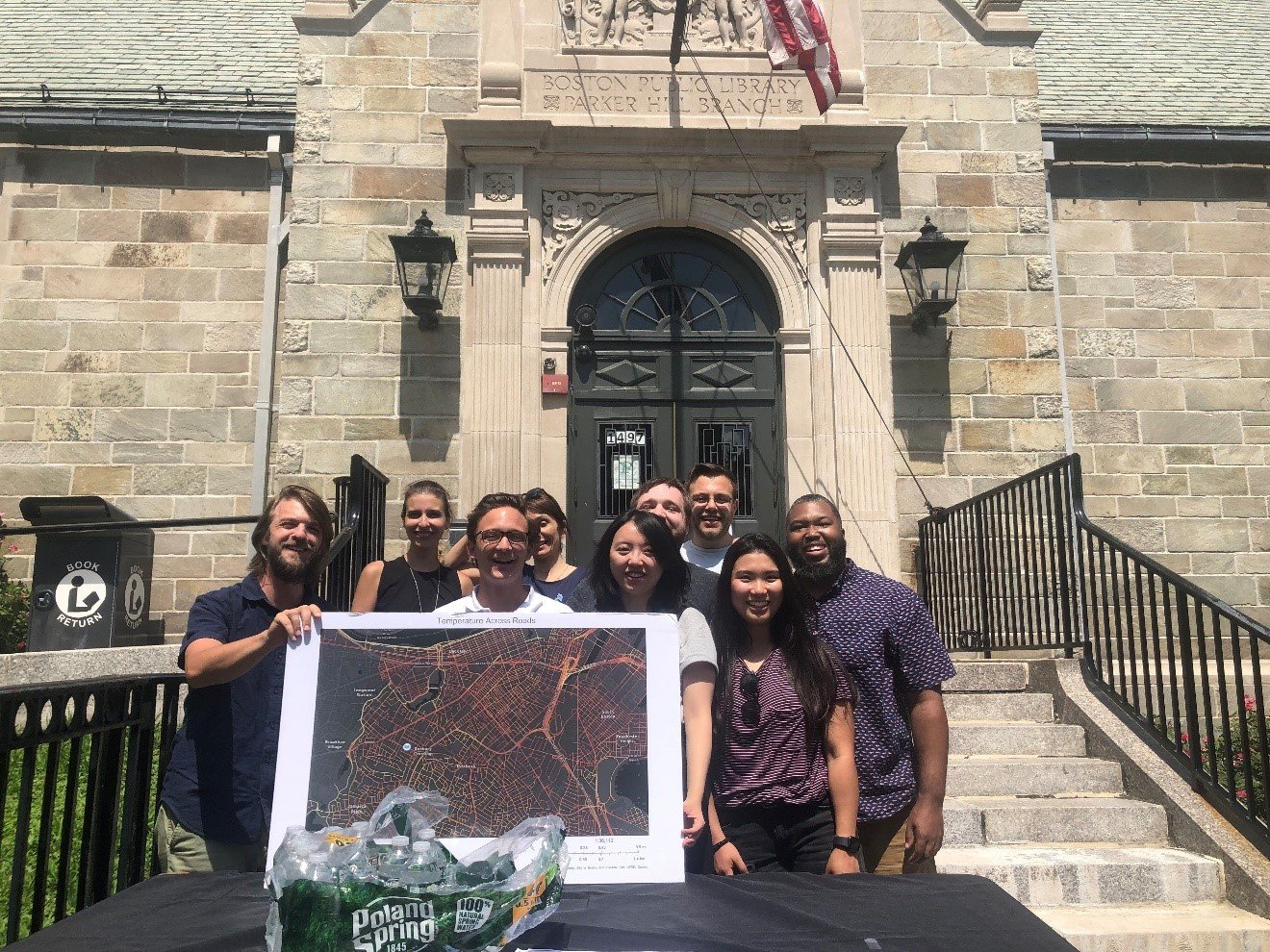Climate Resilience
Data-Driven, Community-Led Solutions
The Boston Area Research Initiative hands out water and alerts residents to the temperature of streets in Boston’s Mission Hill neighborhood.
One of my newest lines of research places environmental sensor data in the hands of community stakeholders, thereby catalyzing science-driven solutions for climate resilience that are equitable, inclusive, and balance local priorities. This work requires the modeling of microspatial inequities in environmental hazards within neighborhoods and in-depth community partnerships. This is in collaboration with my colleagues Michelle Laboy, Amy Mueller, and Moira Zellner at Northeastern University, funded by the National Science Foundation’s Smart & Connected Communities program and the American Institute of Architect’s Latrobe Prize.
Publications (students in bold)
O’Brien, D.T., Gridley, B., Trlica, A., Wang, J., Shrivastava, A. 2020. Urban heat islets: Street segments with higher land surface temperatures experience a greater increase in medical emergencies during heat advisories. American Journal of Public Health. 110: 994-1001.
Grants
American Institute of Architecture. Latrobe Prize for a proposal titled, “Common SENSES: Standards for Enacting Sensor Networks for an Equitable Society.” $100,000. 2022-2024. Co-PI, with Michelle Laboy (PI), Amy Mueller, and Moira Zellner.
